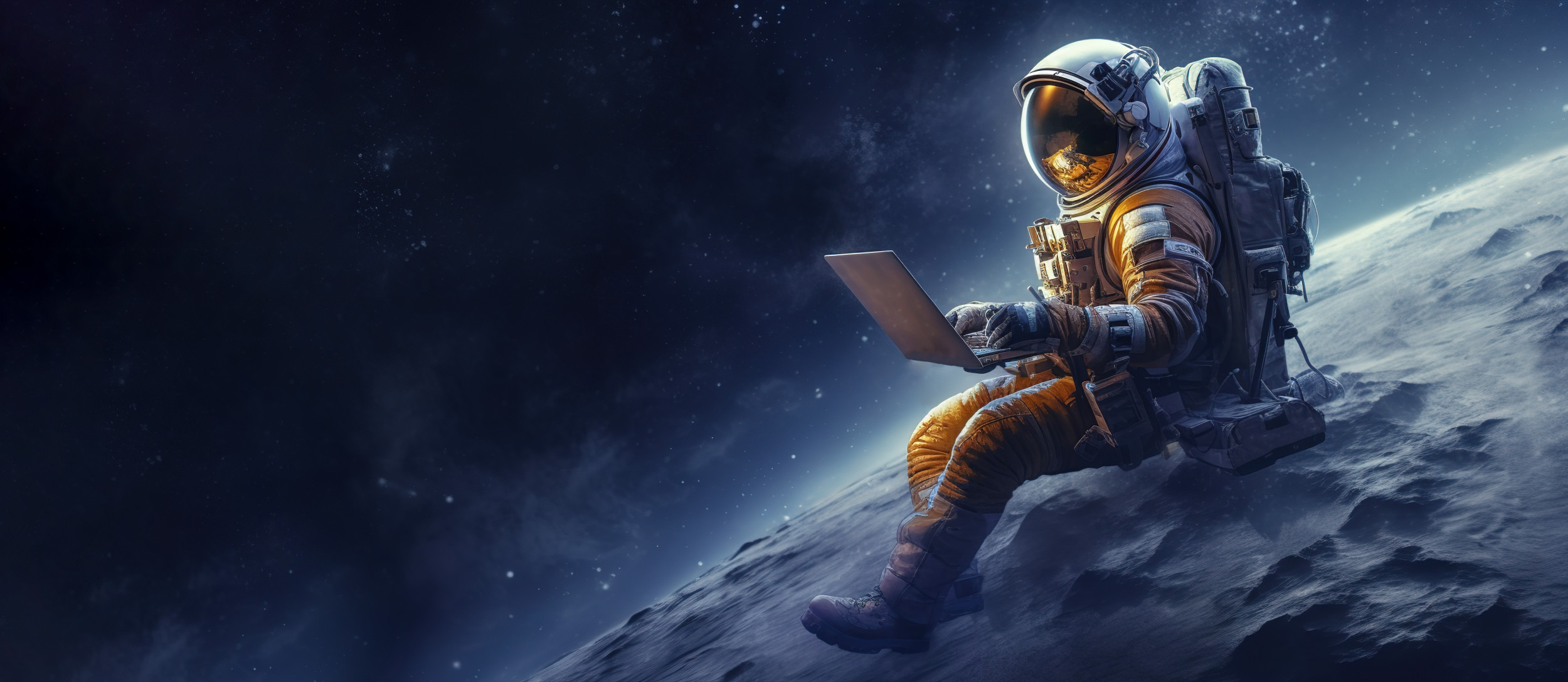
Space exploration began within human minds — long before we actually went into space, we did so in our imagination. We then transformed these dreams into physical reality and set out to explore. In recent years, artificial intelligence (AI) has emerged as a critical feature in allowing humans to better understand what we have found out in the cosmos. AI can also help us learn how to overcome the challenges of exploring space so that we can explore even further.
Enhanced Data Analysis
Space exploration generates vast amounts of data — astronomy, earth science, space weather — spacecraft now generate terabytes of information weekly. Early in the exploration of space it became clear that we could build things that collected more data than a human mind — or collection of human minds — could easily analyze. This led not only to a bottleneck in gleaning meaningful insights from data collected but also held back the application of that knowledge toward building the next generation of spacecraft and instruments.
What we now call AI arose, in many ways, from the data analysis needs required to build and operate an ever-growing fleet of spacecraft. And the use of AI has left Earth as well. Many spacecraft now embed AI onboard to help them solve problems without human intervention. Indeed, the rovers driving around Mars do much of their planning with AI — on Mars.
AI analyzes data more efficiently, identifying patterns, anomalies, and correlations that might otherwise go unnoticed. AI algorithms can sift through to uncover hidden patterns, allowing scientists to make new discoveries and refine existing theories.
Another example of data collection is the SETI@Home project, administered by the University of California, Berkeley. AI algorithms analyze radio data from telescopes to search for extraterrestrial intelligence. While the project has since paused sending new data to volunteers, huge troves of information will need to be analyzed in the future. AI is the obvious choice to tackle this task.
Autonomous Devices and Robotics
Space exploration involves numerous risks and challenges, such as long-duration missions, harsh environments, and communication delays. As mentioned above, AI plays an increasingly critical role by allowing autonomous systems and robotics to perform tasks in space that would be dangerous or impractical for humans to conduct. These robots can autonomously navigate, adapt to changing environments, and carry out complex operations. And if properly configured, these robotic explorers can go about their tasks without constantly phoning home to ask for instructions about how to drive around that big rock.
SpaceX's Falcon 9 uses AI in its autopilot systems when docking at the International Space Station (ISS). Launch and orbital trajectories, fuel usage, atmospheric conditions during launch and re-entry and even the movement of liquids within the engine can be detected with the system.
Intelligent Mission Planning
Planning missions in space is an intricate task that requires consideration of various engineering factors balanced with achieving a mission's scientific objectives. AI tools optimize mission routes and schedules, decrease costs, and maximize scientific findings.
NASA's Jet Propulsion Laboratory implements AI models and assesses a variety of mission parameters. Mission planners can then understand potential outcomes in different situations. AI can help in the scheduling of telescopic observations from Earth, in Earth orbit, or on spacecraft traversing the solar system.
Space Weather Forecasting
Space weather, such as solar flares and cosmic rays, poses significant challenges to space exploration. The impact of these phenomena can range from disruption of satellite communications to endangering astronauts' lives. AI algorithms can analyze space weather data and provide accurate forecasts, allowing spacecraft operators to prepare for conditions that might affect performance and astronauts can be alerted to take preventive measures.
AI is also used to identify patterns in historical space weather data, allowing more insight into current space weather data as to what might happen next. The sheer immensity of the world's space data collected thus far would simply not be possible without the use of advanced modeling capabilities that AI systems can offer.
Exoplanet Discovery and Analysis
The discovery of exoplanets has vastly increased in the past several decades. A trickle of periodic discoveries has become a constant deluge. AI has revolutionized this field by assisting in the identification and analysis of exoplanetary systems. AI algorithms are constantly trained on large datasets of light curves and spectral data, thus allowing much of the planetary discovery process to be automated.
NASA's Jet Propulsion Laboratory uses AI capabilities to examine incoming images taken by planetary missions orbiting other worlds or driving across them. AEGIS, the Mars Perseverance Rover's computer vision system, detects and categorizes different rock types found on the planet. The European Space Agency is implementing "hopper" robots that navigate planetary surfaces using legs to leap. AI algorithms monitor the orientation of the robot and help its legs move while maintaining balance. Having this level of mobility can allow us to explore locations previously unreachable by wheeled robots.
Wrapping Up
As we now know from daily news stories, AI is critical in all manner of industries. It is especially valuable in space exploration. AI continues to revolutionize how we gather and analyze voluminous data from space and operate autonomous systems to explore — all of which afford us an unprecedented ability to learn more about our home planet, the rest of our solar system, and far beyond.
In my opinion, as powerful as AI tools have become, nothing will ever surpass the basic abilities of human imagination. We are the ones who dream the impossible and then create the tools — like AI — to make those dreams come true.
Uncommon Knowledge
Newsweek is committed to challenging conventional wisdom and finding connections in the search for common ground.
Newsweek is committed to challenging conventional wisdom and finding connections in the search for common ground.





